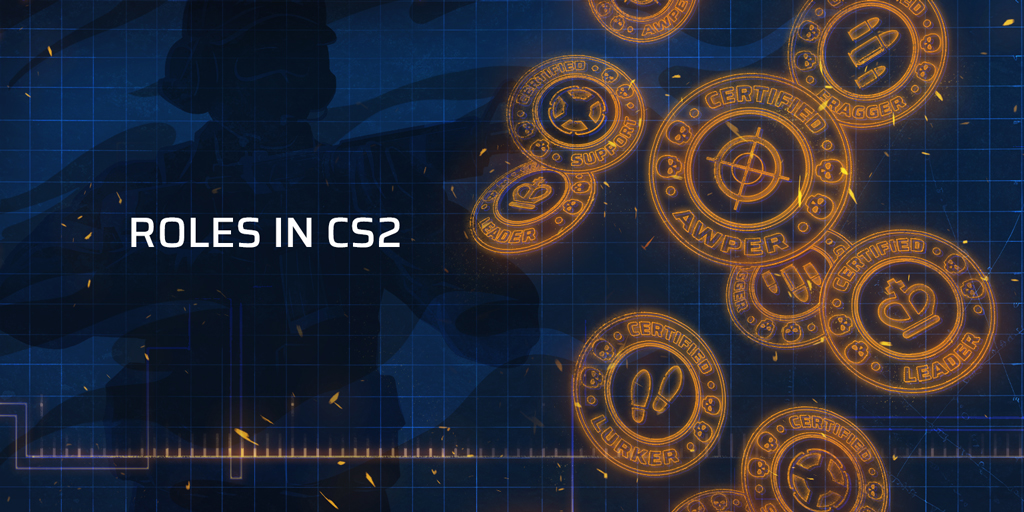Daily Wonders and Discoveries
Explore the latest news and intriguing insights from around the world.
Leading from the Frontline: The IGL Journey in CS2
Discover the inspiring journey of the IGL in CS2 and how leading from the frontline can elevate your game to new heights!
Understanding the Role of an In-Game Leader in CS2: Strategies for Success
In Counter-Strike 2 (CS2), the In-Game Leader (IGL) plays a pivotal role in determining the team's success. An IGL is responsible for crafting strategies, calling plays, and ensuring that all team members are synchronized during a match. This involves not only understanding the game mechanics but also adapting to opponents' tactics on the fly. Effective communication and a solid command of team dynamics are essential. Here are a few key strategies that successful IGLs employ:
- Adaptability: IGLs must be able to adjust strategies based on the flow of the game.
- Map knowledge: A thorough understanding of each map's layout and common tactics provides a strategic advantage.
- Player strengths: Recognizing and utilizing the unique skills of each team member is crucial for success.
The best IGLs cultivate a strong team environment where all players feel empowered to contribute. This fosters trust and allows for more fluid and effective strategic execution during high-pressure situations. They often hold regular briefings to review past performances, analyze game footage, and refine their overall strategy. Moreover, resilience is vital; an IGL must remain composed even when plans go awry. By continuously evolving their approach and ensuring that every player on the team has a clear understanding of their role, IGLs create pathways to victory in CS2. In summary, the role of the IGL is not merely about calling shots but about sculpting a cohesive unit that can adapt and overcome challenges together.

Counter-Strike is a popular first-person shooter game that pits teams against each other in tactical combat scenarios. Players can enhance their gaming experience through various means, including CS2 Skins upgraden, which adds unique aesthetics to their weapons and gear. The competitive nature of the game, combined with its strategic depth, has made it a favorite among gamers worldwide.
Top Challenges Faced by IGLs in CS2 and How to Overcome Them
The role of an IGL (In-Game Leader) in CS2 presents unique challenges that can significantly impact a team's performance. One of the primary difficulties faced by IGLs is managing team dynamics and communication under pressure. When the stakes are high, maintaining clear and effective communication can be tough, especially with diverse playstyles and personalities. Poor communication can lead to misplays and misunderstandings during critical moments in a match. To overcome this challenge, IGLs should establish a set of communication protocols and routinely practice these during scrims, ensuring that every team member is on the same page.
Another significant challenge for IGLs in CS2 is adapting strategies on-the-fly based on real-time in-game situations. Each match can present unexpected tactics from opponents, forcing IGLs to re-evaluate and tweak strategies rapidly to secure a win. This adaptability requires not only game knowledge but also the ability to read opponents' movements and tendencies. To tackle this, IGLs should invest time in reviewing previous matches, analyzing enemy strategies, and conducting thorough debriefs with the team to improve their ability to make quick tactical decisions during live play.
The Evolution of Leadership Styles: IGL Success Stories from CS2
The evolution of leadership styles has been significantly influenced by the need for adaptability in an ever-changing business landscape. As organizations evolve, so do their approaches to leadership, with many successful companies like IGL from CS2 showcasing how flexible leadership can drive innovation and improve team dynamics. In the past, traditional autocratic styles dominated, but modern leaders are now adopting more democratic and transformational styles, fostering collaboration and engagement. Research indicates that leaders who prioritize inclusivity and feedback create more motivated teams, leading to increased productivity and improved company culture.
Success stories from IGL illustrate the effectiveness of these evolved leadership styles. One notable example involves the implementation of a participative approach, where team members are encouraged to contribute ideas and opinions in decision-making processes. This shift not only increased morale but also led to a surge in creative solutions and operational efficiency. Furthermore, leaders at IGL emphasize continuous learning and development, ensuring team members have the necessary resources to grow. As a result, IGL has not only achieved remarkable business success but also became a testament to the power of adaptive leadership in contemporary organizations.